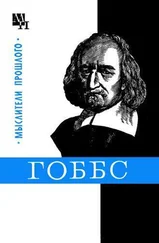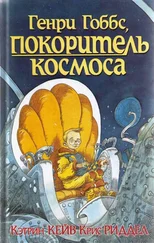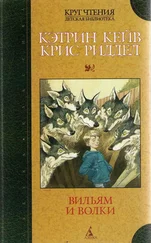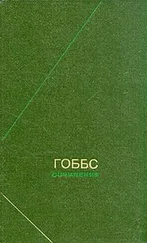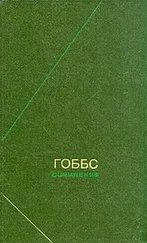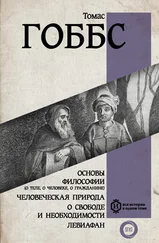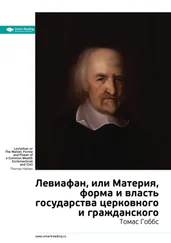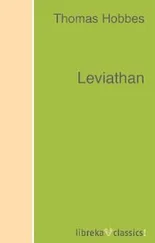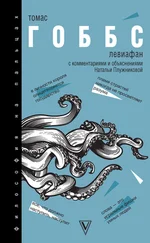Insignificant Speech
There is yet another fault in the Discourses of some men; which may also be numbred amongst the sorts of Madnesse; namely, that abuse of words, whereof I have spoken before in the fifth chapter, by the Name of Absurdity. And that is, when men speak such words, as put together, have in them no signification at all; but are fallen upon by some, through misunderstanding of the words they have received, and repeat by rote; by others, from intention to deceive by obscurity. And this is incident to none but those, that converse in questions of matters incomprehensible, as the Schoole–men; or in questions of abstruse Philosophy. The common sort of men seldome speak Insignificantly, and are therefore, by those other Egregious persons counted Idiots. But to be assured their words are without any thing correspondent to them in the mind, there would need some Examples; which if any man require, let him take a Schoole–man into his hands, and see if he can translate any one chapter concerning any difficult point; as the Trinity; the Deity; the nature of Christ; Transubstantiation; Free–will. etc. into any of the moderne tongues, so as to make the same intelligible; or into any tolerable Latine, such as they were acquainted withall, that lived when the Latine tongue was Vulgar. What is the meaning of these words. "The first cause does not necessarily inflow any thing into the second, by force of the Essential subordination of the second causes, by which it may help it to worke?" They are the Translation of the Title of the sixth chapter of Suarez first Booke, Of The Concourse, Motion, And Help Of God. When men write whole volumes of such stuffe, are they not Mad, or intend to make others so? And particularly, in the question of Transubstantiation; where after certain words spoken, they that say, the White–nesse, Round–nesse, Magni–tude, Quali–ty, Corruptibili–ty, all which are incorporeall, etc. go out of the Wafer, into the Body of our blessed Saviour, do they not make those Nesses, Tudes and Ties, to be so many spirits possessing his body? For by Spirits, they mean alwayes things, that being incorporeall, are neverthelesse moveable from one place to another. So that this kind of Absurdity, may rightly be numbred amongst the many sorts of Madnesse; and all the time that guided by clear Thoughts of their worldly lust, they forbear disputing, or writing thus, but Lucide Intervals. And thus much of the Vertues and Defects Intellectuall.
Chapter IX.
Of the Severall Subjects of Knowledge
There are of KNOWLEDGE two kinds; whereof one is Knowledge Of Fact: the other Knowledge Of The Consequence Of One Affirmation To Another. The former is nothing else, but Sense and Memory, and is Absolute Knowledge; as when we see a Fact doing, or remember it done: And this is the Knowledge required in a Witnesse. The later is called Science; and is Conditionall; as when we know, that, If The Figure Showne Be A Circle, Then Any Straight Line Through The Centre Shall Divide It Into Two Equall Parts. And this is the Knowledge required in a Philosopher; that is to say, of him that pretends to Reasoning.
The Register of Knowledge Of Fact is called History. Whereof there be two sorts: one called Naturall History; which is the History of such Facts, or Effects of Nature, as have no Dependance on Mans Will; Such as are the Histories of Metals, Plants, Animals, Regions, and the like. The other, is Civill History; which is the History of the Voluntary Actions of men in Common–wealths.
The Registers of Science, are such Books as contain the Demonstrations of Consequences of one Affirmation, to another; and are commonly called Books of Philosophy; whereof the sorts are many, according to the diversity of the Matter; And may be divided in such manner as I have divided them in the following Table.
I. Science, that is, Knowledge of Consequences; which is called also PHILOSOPHY
A. Consequences from Accidents of Bodies Naturall; which is called NATURALL PHILOSOPHY
1. Consequences from the Accidents common to all Bodies Naturall; which are Quantity, and Motion.
a. Consequences from Quantity, and Motion Indeterminate; which, being the Principles or first foundation of Philosophy, is called Philosophia Prima
PHILOSOPHIA PRIMA
b. Consequences from Motion, and Quantity Determined
1) Consequences from Quantity, and Motion Determined
a) By Figure, By Number
1] Mathematiques,
GEOMETRY
ARITHMETIQUE
2) Consequences from the Motion, and Quantity of Bodies in
Speciall
a) Consequences from the Motion, and Quantity of the great parts of the World, as the Earth and Stars,
1] Cosmography
ASTRONOMY
GEOGRAPHY
b) Consequences from the Motion of Speciall kinds, and Figures of Body,
1] Mechaniques, Doctrine of Weight
Science of
ENGINEERS
ARCHITECTURE
NAVIGATION
2. PHYSIQUES, or Consequences from Qualities
a. Consequences from the Qualities of Bodies Transient, such as sometimes appear, sometimes vanish
METEOROLOGY
b. Consequences from the Qualities of Bodies Permanent
1) Consequences from the Qualities of the Starres
a) Consequences from the Light of the Starres. Out of this, and the Motion of the Sunne, is made the Science of
SCIOGRAPHY
b) Consequences from the Influence of the Starres,
ASTROLOGY
2) Consequences of the Qualities from Liquid Bodies that fill the space between the Starres; such as are the Ayre, or substance aetherial.
3) Consequences from Qualities of Bodies Terrestrial
a) Consequences from parts of the Earth that are without Sense,
1] Consequences from Qualities of Minerals, as
Stones, Metals, etc.
2] Consequences from the Qualities of Vegetables
b) Consequences from Qualities of Animals
1] Consequences from Qualities of Animals in
Generall
a] Consequences from Vision,
OPTIQUES
b] Consequences from Sounds,
MUSIQUE
c] Consequences from the rest of the senses
2] Consequences from Qualities of Men in Speciall
a] Consequences from Passions of Men,
ETHIQUES
b] Consequences from Speech,
i) In Magnifying, Vilifying, etc.
POETRY
ii) In Persuading,
RHETORIQUE
iii) In Reasoning,
LOGIQUE
iv) In Contracting,
The Science of
JUST and UNJUST
B. Consequences from the Accidents of Politique Bodies; which is called POLITIQUES, and CIVILL PHILOSOPHY
1. Of Consequences from the Institution of COMMON–WEALTHS, to the Rights, and Duties of the Body Politique, or Soveraign.
2. Of Consequences from the same, to the Duty and Right of the Subjects.
Chapter X.
Of Power, Worth, Dignity, Honour and Worthiness
Power
The POWER of a Man, (to take it Universally,) is his present means, to obtain some future apparent Good. And is either Originall, or Instrumentall.
Naturall Power, is the eminence of the Faculties of Body, or Mind: as extraordinary Strength, Forme, Prudence, Arts, Eloquence, Liberality, Nobility. Instrumentall are those Powers, which acquired by these, or by fortune, are means and Instruments to acquire more: as Riches, Reputation, Friends, and the Secret working of God, which men call Good Luck. For the nature of Power, is in this point, like to Fame, increasing as it proceeds; or like the motion of heavy bodies, which the further they go, make still the more hast.
The Greatest of humane Powers, is that which is compounded of the Powers of most men, united by consent, in one person, Naturall, or civill, that has the use of all their Powers depending on his will; such as is the Power of a Common–wealth: or depending on the wills of each particular; such as is the Power of a Faction, or of divers factions leagued. Therefore to have servants, is Power; To have Friends, is Power: for they are strengths united.
Читать дальше
Конец ознакомительного отрывка
Купить книгу


